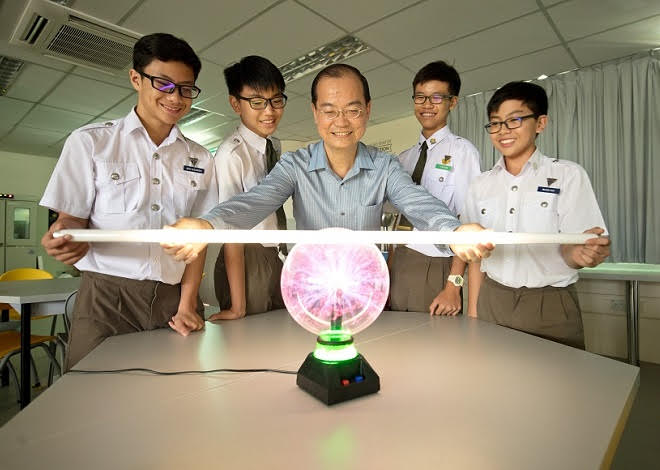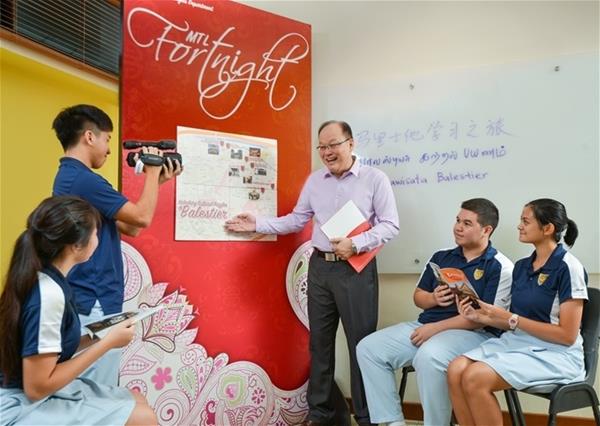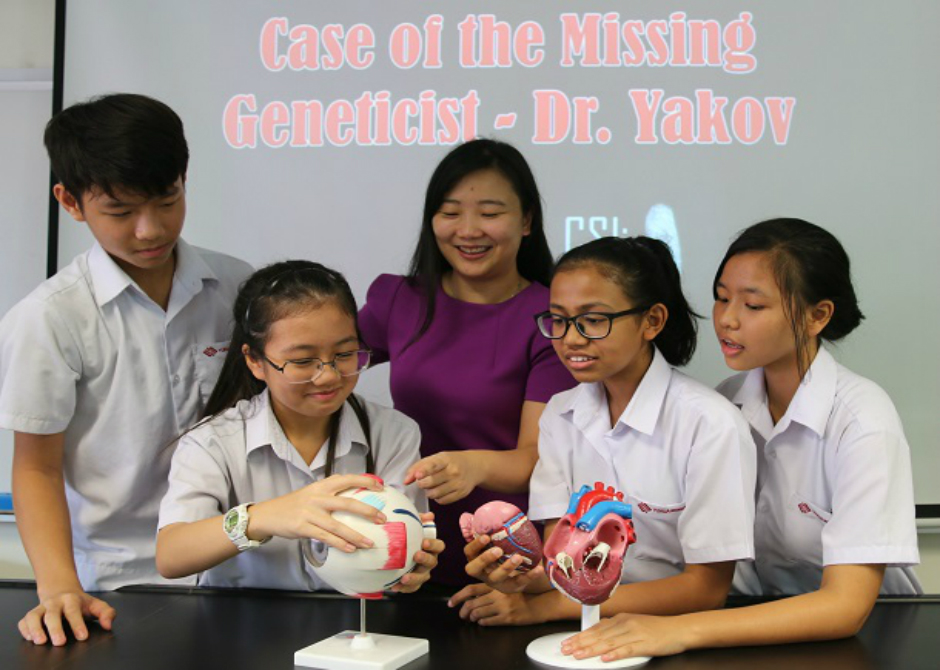Tan Ping Hock, Catholic High School, President’s Award for Teachers 2017 Finalist
Tan Ping Hock gets his students to learn from each other by asking them to read up on an assigned topic. Next, he has them answer difficult multiple-choice questions via their mobile phones, but does not tell them how they fared.
He then sorts them into teams of four, each with students of different abilities, and gives the teams the same questions. The team has to agree on their answer and indicate their choice on a scratch card. Points will be awarded for the first, second or third attempts to the correct answer accordingly. It is an inspired move – the stronger students end up helping the weaker ones.
Finally, he reveals the answers. He then invites those who had given wrong answers individually to share why they changed their minds when they joined their teams.
Ping Hock does this because he has noticed that students learn very well in teams. “They analyse and debate, pick up peer-mentoring skills and learn how to withstand peer pressure,” he says.
He believes teachers too can learn from each other: his Catholic High colleagues are free to pop into his class to observe him running a team-based learning session, and he gladly sits into others’ classes. It is part of the school’s Open Classroom scheme, where any teacher who has something to share can open up his class to others.
In fact, Ping Hock helped to institute this three-year-old arrangement through the Staff Professional Development Committee. So committed is he to sharing expertise, he is even enthusiastically promoting team-based learning to neighbouring schools.
He tells his younger colleagues, “We are the nuts and bolts in the big machinery of MOE, driving the nation forward in education. But without the nuts and bolts, the machine cannot work. What we do from day to day may seem trivial to us but if we do it well, we have fulfilled our mission.”
Showing the Relevance of Science
Even as he gets his students to collaborate, he makes sure what they learn is fundamentally relevant and interesting. He does this by showing the connections Science has to other subjects, and the real world.
When a solar eclipse was about to take place last year, Ping Hock adjusted his lesson schedule so his students could learn about the properties of light ahead of the event. He gave a scientific explanation of the phenomenon at a school assembly, and arranged for the Chinese Department to give a separate talk on eclipse myths in Chinese culture.
On the day of the eclipse, he re-arranged the day’s lessons so that students could observe it.
For practical lessons on light, Ping Hock had his students build a miniature house, and wire it to provide proper illumination. “I try to get the students to appreciate how professionals work and understand how the working world is like,” he says.
While covering the topic of energy, Ping Hock chanced across an advertisement by a Singapore company that was building a power plant in Myanmar. He contacted the company’s chairman, and invited him to the school to talk about the project.
He then got his students to role-play different stakeholders – government advisers, environmentalists, villagers and investors – in an imaginary proposal to build a power plant in Cambodia. They had to write reports based on their roles. In the process, they grappled with issues such as national energy projections, ecology and risk management.
“I also try to get my students excited about things around us in order to spark in them an interest in science,” he says.
“They don’t need to become engineers but they should still have good scientific knowledge – science is something one needs to know for everyday living. But of course, if they are interested, they can pursue a career in science.”
Understanding What Motivates Students
The icing on the cake are the little rewards Ping Hock gives his students. He tailors them for different groups: highly motivated ones are rewarded with a congratulatory message to their parents when they have done well, and the restless ones get stars, which can be accumulated and redeemed for a burger.
But even for the latter group, he observes that “motivation, comes not in the food itself, but the recognition they get”.
Students appreciate his efforts. One of them says, “He is well-liked. It is hard to find a teacher who wins the respect of all the students. I think of him as a wise old man in a fairy tale. Once in a while, he will pick up a story and teach values from it.”
But Ping Hock, who signs off holiday assignments with “Your friendly Physics teacher”, does not think of himself as anyone special. He tells his students: “I’m just a bus driver, and you are my passengers. I’ll bring you to your next destination. Let’s make this journey a fun and exciting one.”






